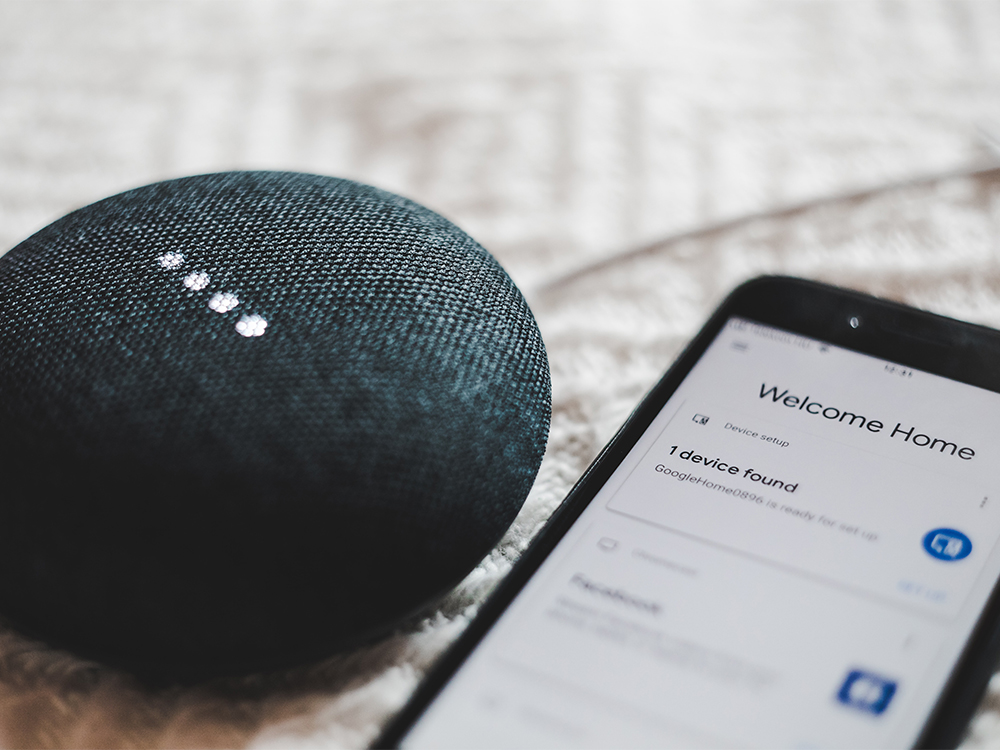Timely Topic: Are Your Smart Devices Spying on You?
12.13.2022

Recently proposed legislation to require disclosures about cameras and recording equipment in smart appliances has generated the question: Could your refrigerator really be spying on you?
The answer is yes – mostly so businesses can tailor their advertising specifically to you, according to a University of Texas at Dallas cybersecurity expert.
It’s important for consumers to understand that devices – and related apps – harvest data to tailor ads for advertisers and other businesses, said Dr. Murat Kantarcioglu, Ashbel Smith professor of computer science in the Erik Jonsson School of Engineering and Computer Science.
“In the future, once the refrigerator realizes that you’re out of eggs, you’ll get ads for eggs,” said Kantarcioglu, director of the UTD Data Security and Privacy Lab.
The data, including the type and amount of food in the refrigerator, could tell advertisers – or potentially a hacker – a lot about a household, he said. For example, an empty fridge or one that has not been opened in a few days also could signal to a burglar that the residents are away. Microphones could pick up conversations about sensitive health issues and send advertisements related to the issue, compromising an individual’s privacy.
Republican Sen. Ted Cruz of Texas and Democratic Sen. Maria Cantwell of Washington have proposed bipartisan legislation that aims to make consumers aware of the presence of cameras and recording equipment in smart appliances such as refrigerators. The Informing Consumers about Smart Devices Act would require the Federal Trade Commission to create guidelines for products containing audio or visual recording components that are not obvious. The U.S. House has approved a similar measure.
Kantarcioglu, who does not use smart kitchen appliances, encourages consumers to weigh the risks and benefits of each device.
“For me, the privacy risk doesn’t outweigh the utility,” Kantarcioglu said.
But for those who enjoy the benefits of smart appliances, he advises consumers to be mindful of the devices’ capabilities.
“I suggest not having any sensitive conversations near them,” Kantarcioglu said.
How Do Companies Benefit from Eavesdropping Electronics?
For companies, delivering a unique, optimal experience for an individual customer – compared to mass advertising – is now possible with these smart devices.
Alexander Edsel MBA’96, professor of practice in marketing in the Naveen Jindal School of Management, wrote the book Trackable: Business in an IoT & Biometrics World, which focuses on opportunities for leveraging the Internet of Things and biometric technologies in consumer markets.
“Today, major companies can obtain the historical consumption preferences, tastes and impulses of an individual consumer across many different categories, such as clothing, food, cars and travel,” Edsel said. “While this accounts for the majority of today’s marketing, sophisticated companies enabled by machine learning are moving into predicting and influencing what an individual’s next purchase will be. By using additional variables, such as day and time stamps, the weather, and geotracking, this is now a reality.”
In the U.S., some life insurers monitor how a customer behaves online as a way of assessing their health, Edsel said.
In 2019, New York was the first state to set specific guidance governing how life insurers use algorithms to comb through homeownership records, credit scores and internet use when assessing an applicant’s risk. The state allows life insurers to use data from social media when setting premium rates, though the rules require insurers to demonstrate that the data is not being used to discriminate against consumers.
For example, a social media user’s paragliding or binge-drinking photos could increase their risk profile and premiums, Edsel said.
So, how does this relate to household smart devices?
“The fact that Amazon and Google have made major acquisitions in the healthcare space means these quasi-monopolies could leverage their knowledge of customer habits, such as web searches and actions using household appliances powered by Alexa, Nest or Android,” he said. “They could use data like the number of times a refrigerator is accessed or purchases made on Amazon to recommend changes to a consumer’s healthcare coverage and premiums.”
–Kim Horner and Brittany Magelssen
Note to journalists: Dr. Alexander Edsel is available for news media interviews. Contact Brittany Magelssen, 972-883-4357, brittany.hoover@utdallas.edu.
Dr. Murat Kantarcioglu is available for news media interviews. Contact Kim Horner, 972-883-4463, kim.horner@utdallas.edu.
Tags: Alexander Edsel, Dr. Murat Kantarcioglu, ECS, JSOM, Timely Topic